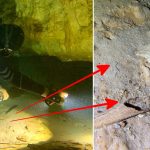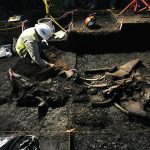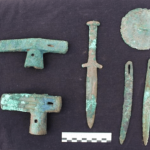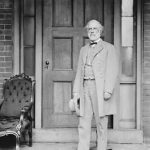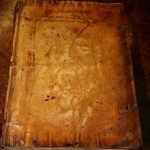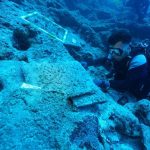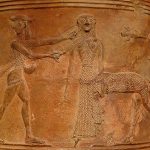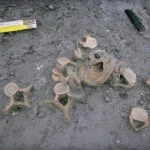The Tomb of Emperor QĖn: Exposure by the Terra-Cotta Army
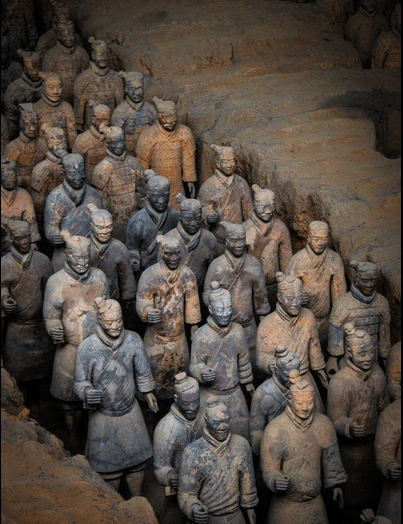
The year was 1974, and a group of workers digging a well outside the city of Xi’an, China, stumbled upon a treasure trove of historical significance—the Terra-Cotta Army, standing guard over the tomb of China’s first emperor, Qin Shi Huang. This archaeological marvel has captivated the world with its life-size clay soldiers, each with unique features and arranged meticulously according to their ranks.
Emperor Qin’s Tomb Unveiled
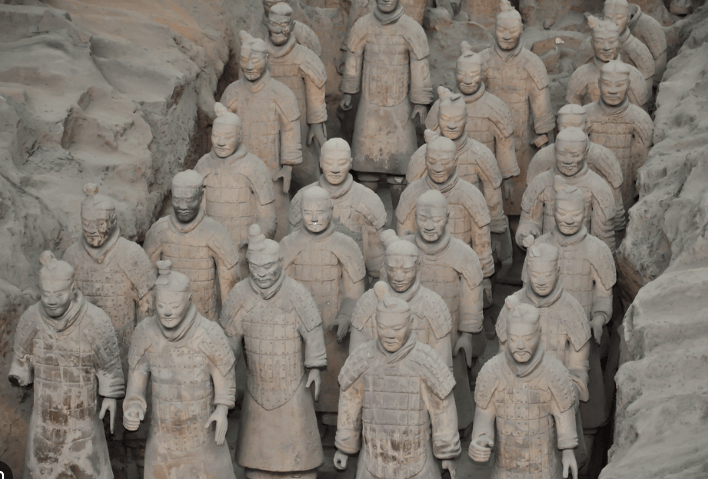
Emperor Qin Shi Huang, the first emperor of China, left an indelible mark on the country’s history. His tomb, a sprawling mausoleum complex, was designed to accompany him into the afterlife. This monumental undertaking aimed to preserve not only his mortal remains but also an army that would stand guard for eternity.
The Great Discovery
The accidental discovery in 1974 triggered a series of events that would rewrite history books. Government archaeologists were swiftly dispatched to the site, where they unearthed not just one, but thousands of clay soldiers. The significance of this find resonated across the globe, marking it as one of the most extraordinary archaeological discoveries of all time.
Life-Size Clay Soldiers
The clay soldiers, standing tall and poised for battle, boast unique facial expressions and are meticulously arranged based on their ranks. Each soldier is a testament to the craftsmanship of ancient Chinese artisans, capturing the essence of the Qin Dynasty.
Colorful Past Revealed
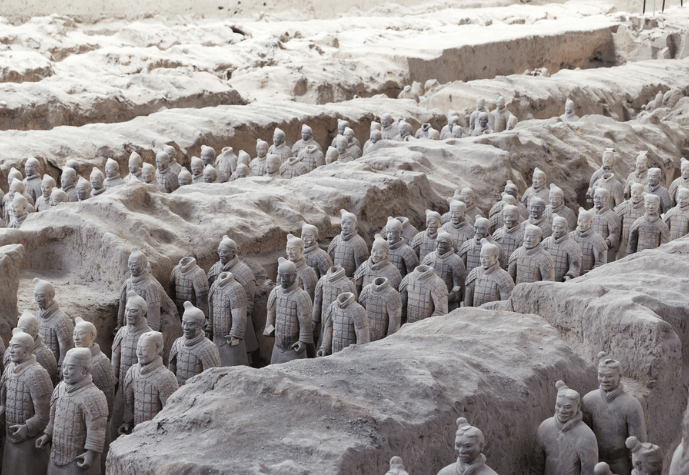
While the soldiers may appear gray today, patches of paint hint at a once vibrant display of colors. The discovery of these remnants provides valuable insights into the attire and appearance of ancient Chinese warriors, bringing history to life in a way that textbooks cannot.
Weapons and Artifacts
Excavations revealed an arsenal of weapons, including swords and arrow tips, remarkably well-preserved after centuries underground. The craftsmanship displayed in these artifacts speaks volumes about the technological advancements of the time.
Underground Corridors and Chariots
The terra-cotta army stands in trenchlike, underground corridors. Alongside the soldiers, clay horses are aligned, and behind them, wooden chariots add to the grandeur of the mausoleum. The layout reflects the meticulous planning that went into creating this awe-inspiring spectacle.
Mausoleum Complex
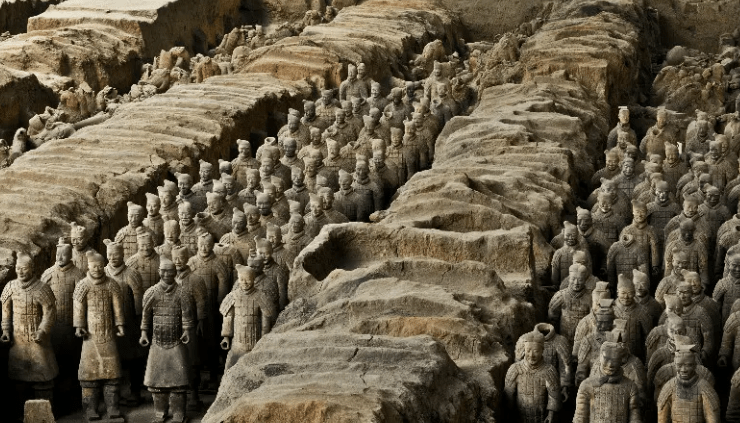
The mausoleum complex, encompassing the tomb and the surrounding structures, paints a vivid picture of the grandeur associated with Emperor Qin. Its design and scale underscore the emperor’s vision for an afterlife that mirrored the majesty of his rule.
Emperor Qin’s Legacy
Emperor Qin Shi Huang’s legacy extends far beyond his rule. The terra-cotta army and his tomb symbolize the power and ambition of the Qin Dynasty, leaving an indelible mark on the course of Chinese history.
Archaeological Challenges and Preservations
The excavation of the Terra-Cotta Army posed numerous challenges, from preserving delicate artifacts to deciphering the secrets hidden beneath the earth. The ongoing efforts to protect and showcase these wonders require a delicate balance between exploration and preservation.
Tourist Attraction and Cultural Impact
Today, the Terra-Cotta Army stands as a testament to China’s rich history and attracts millions of visitors annually. Its impact on Chinese culture is immeasurable, contributing to a global appreciation for the country’s ancient heritage.
